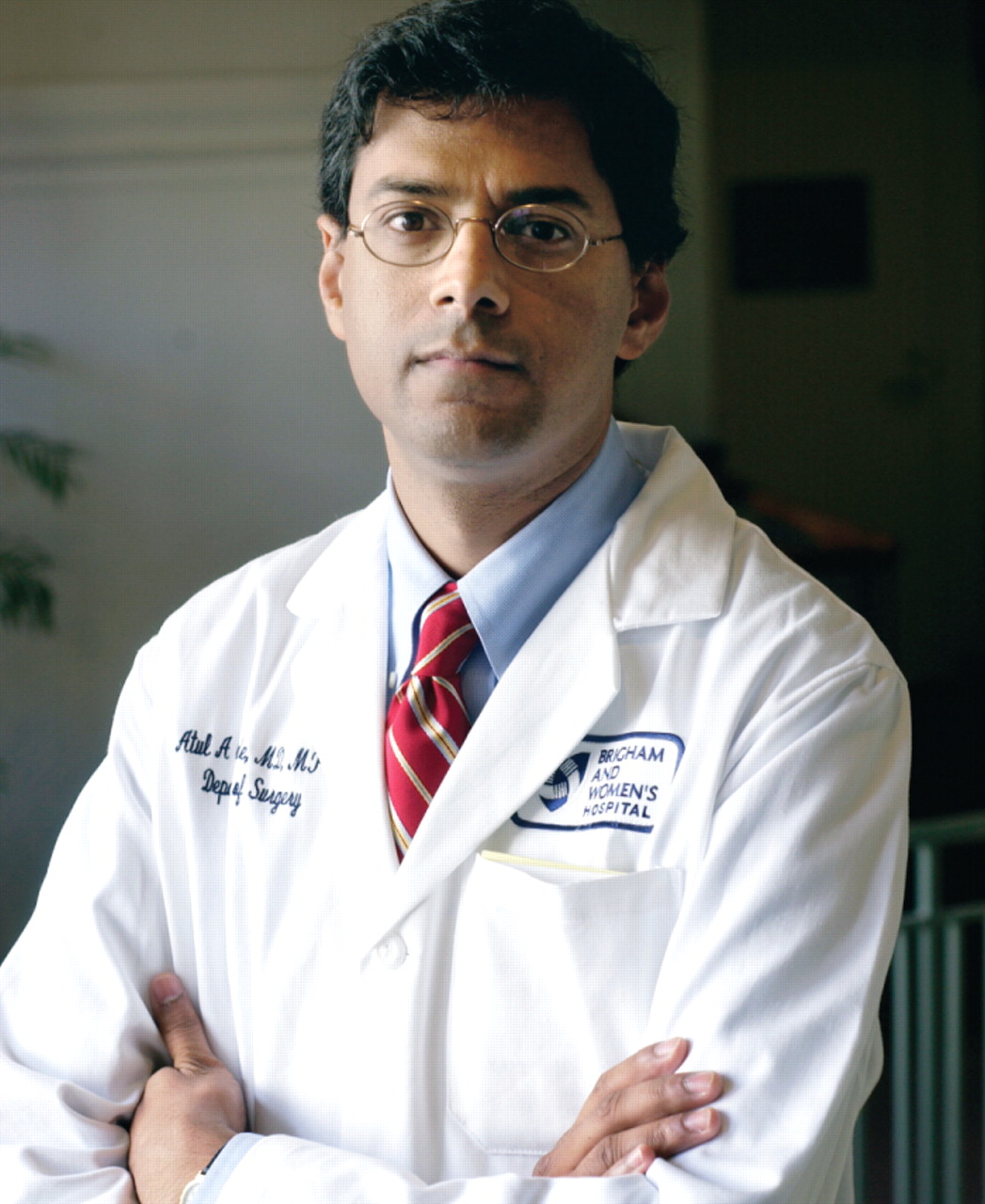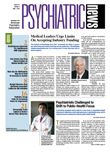To surgeon and writer Atul Gawande, M.D., reforming the nation's health care system is not just about providing access to care. It is also about reforming American doctors.
“The key understanding that I think we have to come to in medicine is that reform cannot just be about providing insurance,” he told Psychiatric News. “We know we have trouble assuring that patients get appropriate care without safety lapses. A lot of it has to do with the fact that we are an industry of highly skilled, hard-working professionals working within a structure that has failed.”
In an interview with Psychiatric News, Gawande laid out his belief that achieving the excellence of which American medicine is capable will require doctors to be responsible not only to the individual patient presenting in the office or clinic, but to the public at large. That means a new focus on population-based outcomes—in addition to individual outcomes—to determine what treatments work and which ones don't, to standardize care where possible, and to minimize or eliminate errors to achieve the optimal public health benefit.
He emphasized especially the dissonance that physicians feel between their individual clinical acumen and excellence and the failures of the larger health care system.
“It has to do with the fact that we are paid as solo agents, but health care is delivered by teams,” Gawande said. “We all experience the sense that individually we are extraordinarily capable, but we don't function as a team. And when we don't function as a team for our patients, we fail. But we are not really sure how to be organized locally, let alone nationally.”
Gawande is an associate professor of surgery at Harvard Medical School, an associate professor in the Department of Health Policy and Management at the Harvard School of Public Health, and research director for the Brigham and Women's Hospital Center for Surgery and Public Health.
He served as a senior health policy advisor in the Clinton presidential campaign and White House from 1992 to 1993. Since 1998, he has been on the staff of The New Yorker magazine, writing about a wide range of issues related to medicine, health, and health care organization and delivery.
Gawande was slated to be this year's Convocation speaker at APA's annual meeting later this month in San Francisco, but scheduling conflicts related to his appointment as director of the World Health Organization's Global Challenge for Safer Surgical Care forced him to cancel. Gawande expressed regret about the cancellation, and APA members can be forgiven for regretting it as well—for he has become one of the most respected thinkers about the future of health care and medical practice in the United States.
In the interview, Gawande outlined the central points he might have brought to San Francisco—that American medicine must do a better job of figuring out what treatments work, eliminating errors, and improving overall public health outcomes.
He does not hesitate to turn the spotlight on his own specialty. “In the United States, we do more than 100 million operations a year, but we have no idea whether what we are doing is [improving the health of our patients],” he said. “We have no idea nationally what our complication or death rates are, let alone whether we are getting better at what we do. All we know is that we are doing twice as many operations as we did 10 years ago.”
He stressed that the simplest kinds of reforms at the surgical bedside can translate into enormous improvements at the level of population health; for instance, he described a 19-item checklist of the kinds of actions one assumes are routinely performed in surgery—use of an antibiotic, say, or determination of the correct site for surgery. When it was instituted in eight hospitals around the world, the surgical complication rates were reduced by more than one-third.
“What this tells us is that we have the ability to do remarkably better than we are doing,” Gawande said.
The same need to incorporate population-based outcomes can be extended to psychiatry, he said.
“There are 17 million patients with depression,” he said.“ We know we have a broader armamentarium now than we did 10 years ago. But are patients in 2009 getting better faster and more reliably than they did 10 years ago? We can't answer that.
“There are high-return areas that with a simple checklist approach could improve our effectiveness in psychiatry and other high-risk areas of medicine enormously.”
So the challenge for psychiatrists, as for surgeons and other specialists, is to adopt a public-health approach to the care of their patients. “Can we take responsibility not just for the individual patient with depression, but all 17 million, so we can make their treatment more consistent and reliable?” he asked.
What Gawande describes will require a sea change in the way physicians are trained to think and work, and while some doctors are ready to accommodate the new reality, most are not, he said.
“There are a group of people who are excited about the prospects for taking a leadership role in our health care system again and there is another group—a larger majority—who are bewildered and frustrated and not sure about any change. And then there is going to remain a group of people who think it can go back to the way it has been in the past.”
But Gawande is sure that the “cottage industry” of physicians working as solo agents for single patients is no longer viable. He likens that mindset to that of mortgage lenders whose insular thinking—get every individual into a home and mortgaged, regardless of the cost to the larger economy—led to the current financial crisis.
“What happened with our financial debacle is that subprime lenders said, 'I'm going to do my own job and not pay attention to the whole system.' So, too, there has been a tendency among our profession to be unwilling to take responsibility for the whole system. But the exciting thing is this is starting to change.” ▪

